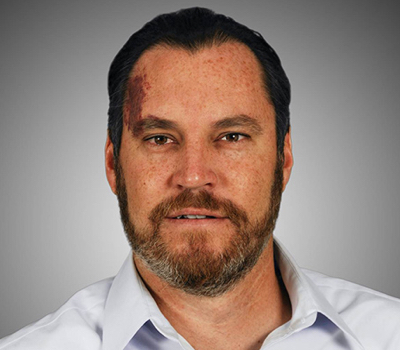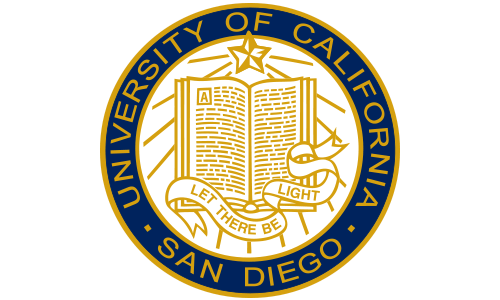Exploring the causes of brain degeneration and using genetics to reverse that trend
Behaviorally, traumatic brain injury (TBI) or age-related neurodegeneration causes severe depression, anxiety, personality changes, increased aggression, social inappropriateness, and deficits in attention, cognition, sensory processing, and communication. These diseases are also non-genetic risk factors for neurological diseases such as chronic traumatic encephalopathy, Alzheimer's disease, Parkinson's disease, and depression. Dr. Head is using genetic intervention via viral vectors to reverse damage caused by TBI and age-related neurodegeneration, and is the only researcher in the world exploring such an approach. Therapeutic approaches have proven to be unsuccessful, and as a result these long-term disabilities lead to a greater requirement for institutional and long-term care. Therefore, there exists an urgent need for the development of more innovative methods to limit neurodegeneration and improve neurologic function after injury or in the aged brain. Evoking structural and functional neuroplasticity that in turn restores motor and cognitive function days to weeks to months after brain trauma remains a major medical challenge for treating millions of individuals.
The brain is easily the organ we rely on most to regulate the various functions of life, and brain injuries resulting from accidents or aging can prove to be debilitating and have lasting and dire consequences. Dr. Brian P. Head, Associate Professor in the Department of Anesthesia at the University of California, San Diego and at the Veterans Administration San Diego Healthcare System, is using genetic interventions (via viral vector gene therapy) to regenerate neuronal growth after traumatic brain injury (TBI, funded by NINDS) and in the aging brain (funded by VA Merit). Specifically, his research uses a viral vector (AAV) to deliver a neuron-targeted chemical, synapsin, to encourage the expression of caveolin-1 (Cav-1) in neurons, a membrane protein that is essential for membrane formation in most cell membranes. Encouraging expression of this neurochemical will ideally enhance signaling in damaged neural tissue, helping the brain recover damaged neurons and retain cognitive ability. Recovered neurons are not just growing, but also fully functional with regards to neural physiology and behavior, where they were not necessarily before. This research is currently done using murine (mouse) models, but efforts to translate this to human models are in place.
Dr. Head's current research projects use similar gene-based therapies, promoting growth by targeting the re-building of proteins, but work with a number of brain-degenerative conditions:
-
Traumatic Brain Injuries (TBI): When an individual suffers a TBI, there is a primary impact zone where the hit occurs, called the primary injury, which usually sees immediate damage and death to tissue. There is a secondary injury that follows which creates a hostile environment of injury where neurons die anywhere from minutes to months later. As the region of brain injury spreads, even more cognitive or motor damage can occur months to years later. Because the primary impact happens immediately, damage is generally unavoidable. Research has indicated though, that damage resulting from the spreading of the secondary injury can in fact, be mitigated or eliminated. Many of the neurons in this secondary region are viable, but die over time. By intervening with genetic-manipulation therapy, it is believed that damaged neurons can not only be protected by promoting growth of the membrane proteins, which are important for synapse formation, but also "sprouting," the growth of axons from a damaged neuron, is encouraged, which re-connects neuronal cells around or through the damaged areas of the brain.
-
Age-Related Neurodegeneration: Brain tissue is subject to degeneration through natural processes like aging. Unlike younger individuals, who have more capacity for reinvoking neural plasticity, older individuals show more of a challenge for natural regrowth of neurons. Dr. Head is working to revitalize the young developmental period in older individuals by targeting areas known to exhibit deficits with age. Specifically, short-term memory is often affected as the hippocampus fails to code new memories. MRIs shows structural as well as functional deficits, and Dr. Head and his team have seen success targeting the hippocampus, which codes new memories.
-
Alzheimer's: Treatment for Alzheimer's is similar to treatment for age-related neurodegeneration because it is not brought about by a traumatic injury. In patients with Alzheimer's, loss of neuron connections can occur for years before being diagnosed. Trying to reinvoke plasticity and growth in viable neurons to reform functional connections in Alzheimer's patients is similar to jump starting a car battery; once it is started, the car will run on its own. Once the neurons sprout new dendrites (finger-like structures that connect brain cells to one another), the brain tends to prune and refine these connections to re-establish functional activity. The "jump-start" is what Dr. Head is providing through his gene therapy--after the jump is applied, the brain has proven it will heal itself.
Bio
Judging from Dr. Head's upbringing, it may seem surprising that he ended up in the medical field. His father was an attorney, and as a child he often read his father's Scientific American journals. His uncle served as a judge for the Environmental Protection Agency, and many of his siblings followed this legal path and became attorneys themselves. Being born into the legal environment of Washington D.C. only furthered the influence of law on Dr. Head's early education, yet despite this he always had a fascination with science, specifically marine biology. After studying government and theology at Georgetown University, a stellar university with a government and legal emphasis, Dr. Head recognized that if he were going to pursue his true passion, marine science, he ought to embark on graduate study in the biological fields.
Dr. Head earned a Masters of Marine Sciences from the University of San Diego, where he studied the cardiovascular system of elasmobranch fishes (sharks, skates, and rays). Studying the signal proteins responsible for mediating contractions, i.e. making the heartbeat, led Dr. Head into studying those same proteins in neural systems. During his doctoral work at the University of California, San Diego, where he now works, he investigated how signal proteins are organized in cell membranes and how this organization is altered in individuals with diseased conditions. With a better understanding of membrane dynamics, he focused his postdoctoral work on identifying how the altering of these signal components using genetic tools can promote neuronal growth and plasticity in the brain.
After completing his academic training, Dr Head found employment opportunities at the Veterans Administration in San Diego, working alongside clinician Dr. Piyush Patel. Here, he began exploring the vastness of the brain and translated his knowledge of cellular structures to studying cells in the brain. Because cells generally behave similarly, the leap from cardiac to neural cells was not incredibly difficult; what proved to be challenging was the extreme complexity of the brain. There is essentially no ceiling we have yet reached that caps the knowledge gathered on the brain, and Dr. Head enjoys the lifelong pursuit of this science. His main motivation for enhancing neuroregeneration is a combination of his genuine passion for science with the everyday reality of brain and spinal cord injuries in veterans at the VA San Diego hospital.
Beyond his research, Dr. Head serves as a member on the Veterans Administration's Institutional Animal Care and Use Committee (IACUC) and Research & Development committees. He has actively mentored anesthesia residents, anesthesia fellows, postdoctoral fellows, graduate and undergraduate students, and has visited international scholars who are involved in research in the laboratory at the VA and with UCSD. In 2014, Dr. Head was bestowed the Presidential Early Career Awards for Scientists and Engineers (PECASE) through the Department of Veterans Affairs, which is the highest honor given by the United States Government to science and engineering professionals in the early stages of their independent research careers.
In the News
The Scripps Research Institute
La Jolla Patch
Publications
Videos
Awards
Presidential Early Career Award for Scientists and Engineers (PECASE), 2014
Department of Veteran's Affairs


